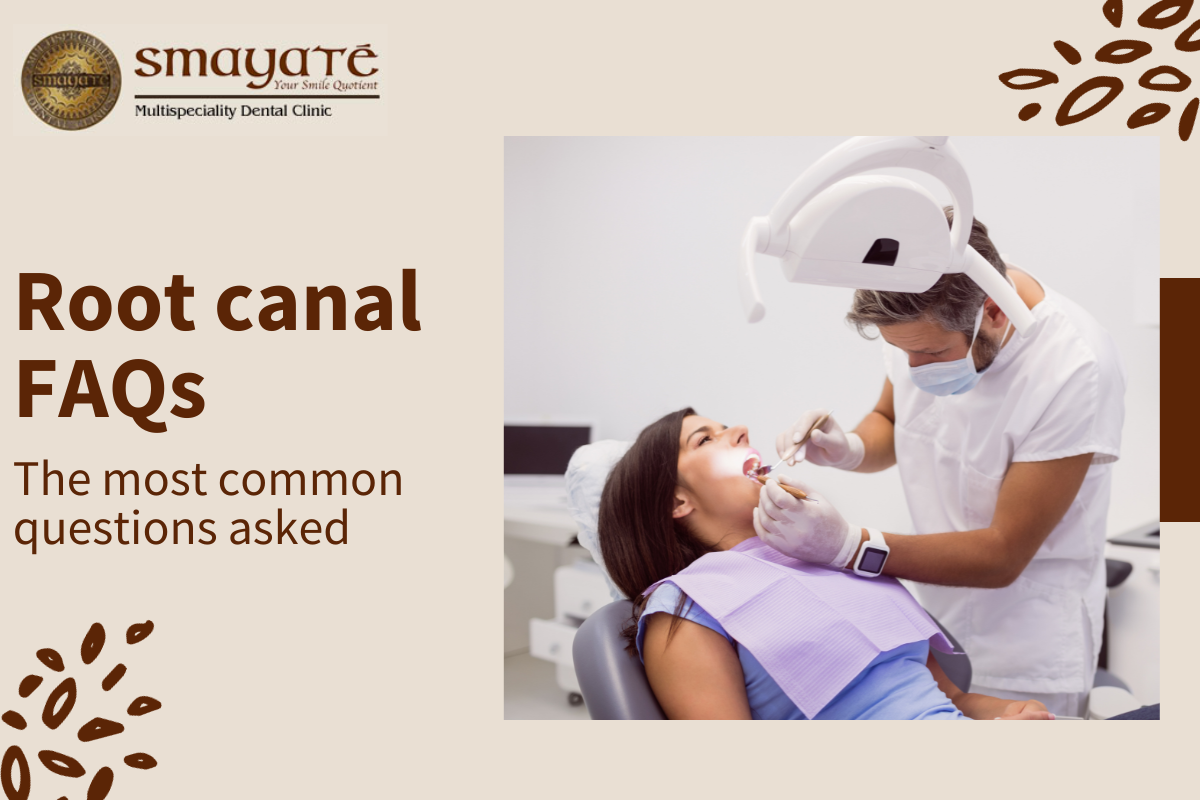You have pain in your tooth, and your dentist has advised root canal treatment in south Delhi. Feeling anxious about the procedure is natural when you have many questions regarding the RCT Delhi. In the information provided below, we will cover Root Canal Treatment FAQs to answer various questions about the RCT in GK1- brought to you by Samayate Dental Clinic Delhi.
What you need to know: Root Canal Treatment FAQs
What is RCT
RCT, or root canal treatment in south Delhi, involves removing the teeth’ infected nerves and blood vessels. The treatment involves cleaning the infected space and filling the tooth with medicated biocompatible material preventing reinfection.
Indications for RCT
There are several indications for RCT GK1 that must be known to you as a part of the Root Canal Treatment FAQs.
- Pain while eating or chewing the food
- Pain on eating hot or cold food items
- Pulpal involvement confirmed radiographically
- Swelling of gums around one tooth
- Abscess formation around the root of the tooth
- Black discoloration of the tooth
Contraindications of root canal treatment
Apart from the indications, it is crucial to know the contraindications of a root canal treatment in south Delhi as a part of Root Canal Treatment FAQs.
- Loose teeth
- Root caries
- Severe infection
- Obstructions of the root canals
- Root fracture
Types of RCT
There are two types of root canal treatment in Delhi- single sitting and multiple sitting RCT. The indication for each procedure is different, and the decision is made after a careful diagnosis of the case.
Care guidelines for RCT
- It is advised not to chew from the side where RCT is performed.
- Avoid drinking hot or cold food items during the recovery phase.
- Use warm saline rinses to clean the area frequently for one week
- Avoid eating hard food items till you get a crown over the teeth
- Take medicines as prescribed by the doctor
- Avoid smoking and consumption of alcohol for a couple of days
- Get your tooth capped with a dental crown as soon as possible
Is crown necessary after RCT?
A dental cap or crown is a prosthesis usually indicated after root canal treatment because the procedure weakens the tooth. The dental cap is necessary to support the tooth and prevent it from fracturing while eating. A crown acts as a shield that protects the tooth from extra stress and pressure.
How long does RCT last
In most cases, a root canal treatment lasts a lifetime, and the best way to increase the life of RCT is by getting a filling or a dental crown as soon as possible. Maintaining adequate oral hygiene is vital to prevent food debris and plaque accumulation around the tooth, reducing the risk of reinfection.
Signs of a failed root canal treatment?
Though the chances of failure are minimal however it is essential to know certain signs as a part of Root Canal Treatment FAQs
- Pain that is not subsiding after weeks of the treatment
- Cracking of the teeth
- Pain on biting and chewing
- Oozing of the pus from the tooth
- Swelling of the gums

